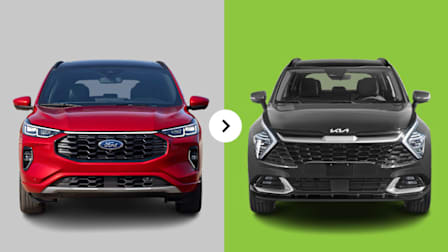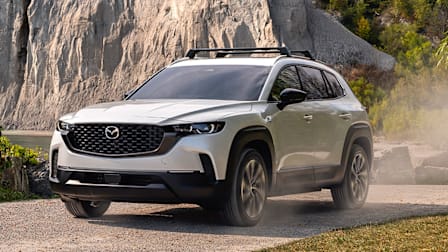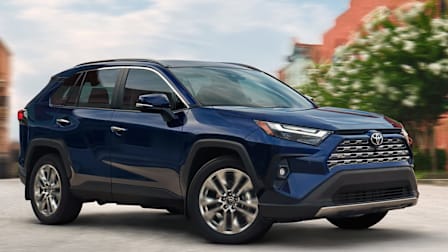How to Buy a New Car in Today’s Challenging Market
Expert tips for navigating high prices and interest rates, new car loan tax deductions, and expiring EV incentives.

Buying a new car right now might feel particularly complicated, especially if you’re on a budget. Average new-car prices and interest rates for financing have remained high, at around $50,000 and nearly 7 percent, respectively. Changing policies around tariffs and tax credits have already caused some manufacturers to raise prices and shift what they import into the U.S. Fortunately, the experts at Consumer Reports can help you score a good deal on a new car despite these changing circumstances.
How to Sort Out Financing
Not many people can pay cash for a new car. If you can, great! If you’re like most people, read on to learn how to handle the money end of things.
Prearrange financing. Figure out your budget and shop for a car loan based on what you can afford to pay monthly and as a down payment. It’s always a good idea to get financing set up through your bank or credit union before going to a dealership to look at cars. That gives you a baseline against which you can compare the terms of dealer financing, which may or may not be a good deal. Sometimes, dealer financing benefits from manufacturer subsidies that feature a lower interest rate than you can get from your bank. Having financing ready to go will also give you a leg up if you’re looking at a sought-after model that isn’t likely to remain on the dealership lot for long.
Make the biggest down payment possible. This is especially important with interest rates trending higher. Maximizing the amount you pay up front reduces the sum that will have interest charges placed upon it. It also shortens the amount of time you’ll be paying interest on the loan. CR recommends putting at least 15 percent down when you buy a vehicle—20 to 25 percent if you can afford it. Keep in mind that the best interest rates are reserved for buyers with excellent credit, so if your credit score needs improvement, putting down as much as possible is especially important.
Don’t pay too much. If you paid more than a few percentage points over MSRP, consider what the car will be worth when you trade it in someday. For example, if you buy an SUV that depreciates $15,000 off the sticker price in three years and you paid $8,000 over MSRP this year for it, that means it cost you $23,000 to own it for that short period. Cars are depreciating assets; overpaying for a new car is likely to compound your long-term losses. (See the worst car deals right now.) You don’t want to get a loan on a car that’s going to lose a lot of value over the next couple of years, or you may end up underwater on the loan, in which you owe more than the car is worth for an extended period. This problem can compound when you buy your next vehicle, if you end up having to roll old debt into the next loan.
How to Buy a New Car
As CR’s expert buyers have found, the car you seek is out there somewhere. It often comes down to being patient and flexible, especially because automakers have prioritized more expensive models and higher trim levels.
“It’s a good idea to focus on the model you want, identify possible alternatives, and know what all of your must-have options are and how much they cost,” Shenhar says. “Do your homework. Learn the difference between the dealer cost and the MSRP, and locate two or three vehicles by searching on the manufacturer’s website or on websites like TrueCar or Cars.com, for example.” (TrueCar is a CR partner.)
If you find the car you want at a reasonable price, and with favorable financing or lease terms, you’ve already won half the battle. Our main advice for buyers is to negotiate from an informed perspective.
If You Can't Find a New Car That Fits
If you’ve exhausted your search options among new models and still can’t find something that meets your needs and budget, there are alternatives. Buying a newer used model can be a good option, especially among certified pre-owned (CPO) cars that carry robust warranty protection.
Here are some other routes to getting something that works for you:




















